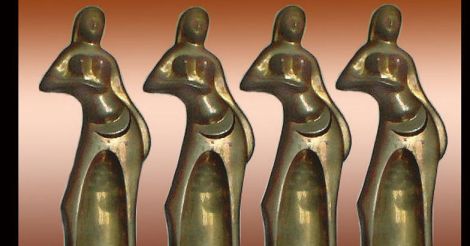The cabinet decision to amend the state film award bylaws has triggered debates within the film community and the media. Almost everyone welcomed the May 13 decisions to increase the cash award and to introduce a new category for best screenplay (adaptation). However, a particular condition that anyone applying for an award has to submit an affidavit on stamp paper promising not to challenge the jury’s decision, has been disputed.
An application for award is submitted by the film’s producer and it is he who has to give an assurance that the jury’s decision will not be challenged. That leaves technicians and artistes free to question the jury’s verdicts. Several people have pointed out that this condition cannot be made effective.
That the jury will have the last word is one of the prerequisites for any award selection process. When someone submits a work of art before an award committee, he has to recognise this fact. It is immoral to contest the jury’s verdict, by lamenting that his creation’s artistic worth was not duly recognised.
A jury is composed of individuals with different points of view. When they are required to evaluate a piece of art, there has to be a democratic dialogue happening among them. They reach a consensus through this dialogue.
Many of these understandings can be quite childish and nonsensical. They may decide that a work or an individual need not be presented with more than one award, deserving or not. Such an 'equitable distribution' is often intended to preempt controversies that follow the award announcements.
If we set aside such practices of sharing, the jury’s aesthetical prejudices come to the fore. The awards get an aura of authenticity only because these are decided by a committee appointed by the central or state government.
Anyone submitting his film for being considered for an award has to realise that this is not the best judgment about the work’s artistic value.
At the same time, the condition that the producer has to give it in writing that he will not challenge the jury’s verdict is nothing but undemocratic. This is not a new amendment anyway. This is already in practice. Any applicant has a legal right to appeal a verdict if he thinks rules have been violated. Any condition that seeks to nullify such a right may not have a legal standing.
All application forms related to awards have a disclaimer that the jury’s verdict will be final. But it is not right to insist that such verdicts cannot be criticised. If the jury chairman was not present during the screening of the film, for example, the applicant has all the right to challenge the verdict.
People in the movie industry have to show their willingness to accept the jury’s verdict and to desist from creating a ruckus if their creations are not chosen. At the same time, the government has to refrain from its urge to neutralise creative criticism and legal interventions. We have to put an end to the squabbles that have become the hallmark of every award announcements.
(The writer is a film director and the general secretary of AIFEC and FEFKA, organisations of film technicians at the national and state levels)




































































































































































































































































































































































































































































































































































































































 An application for award is submitted by the film’s producer and it is he who has to give an assurance that the jury’s decision will not be challenged.
An application for award is submitted by the film’s producer and it is he who has to give an assurance that the jury’s decision will not be challenged.
Disclaimer
The comments posted here/below/in the given space are not on behalf of Manorama. The person posting the comment will be in sole ownership of its responsibility. According to the central government's IT rules, obscene or offensive statement made against a person, religion, community or nation is a punishable offense, and legal action would be taken against people who indulge in such activities.